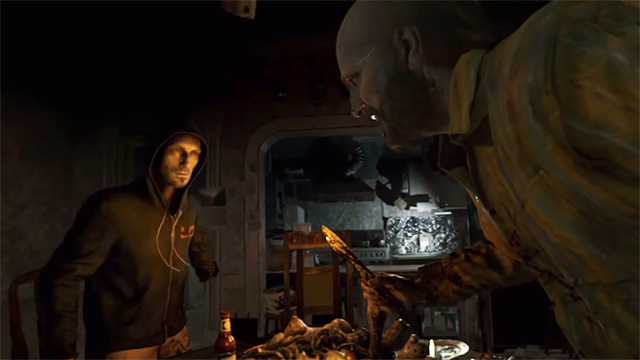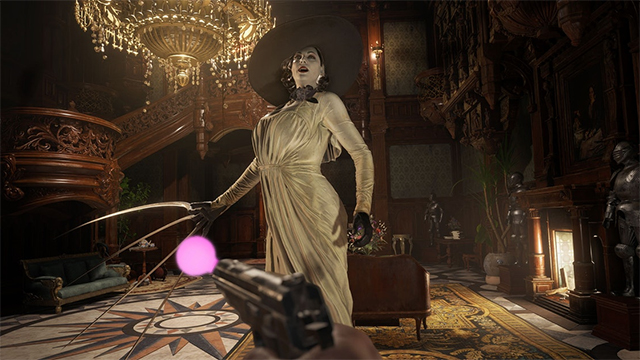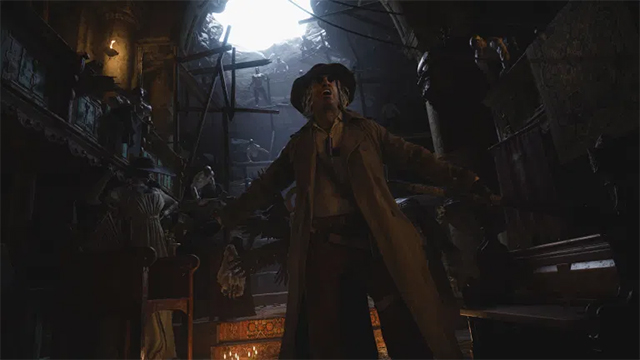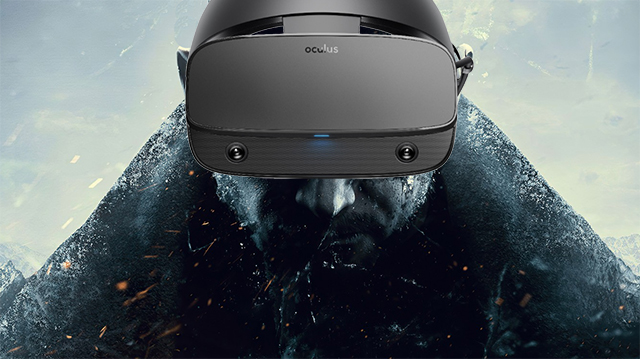Resident Evil Village is a solid entry in the wildly inconsistent franchise. It continues what Resident Evil 7 started, which was a bold, modernized take on Resident Evil. However, aside from sentient mold, Village didn’t carry over one big aspects of RE7: virtual reality. VR was a key component in that seventh mainline title and it’s disappointing not to see it return for Village in its lycan-filled glory.
Virtual reality was still trying to find its feet in early 2017 when Resident Evil 7 came out. Four years is a long time for any piece of tech and that’s abundantly clear with VR. Virtual reality’s biggest games like Beat Saber, Superhot VR, Asgard’s Wrath, Pistol Whip, Boneworks, Half-Life: Alyx, and Walking Dead: Saints and Sinners — to name just a few — weren’t even close to coming out at that time. It’s difficult to imagine those games not existing at one point since they’re so pivotal to how VR is perceived now.
Welcome to (VR) family, son

Resident Evil 7 was before all of that, meaning Capcom was figuratively stumbling around in the dark when trying to adapt the title to the budding control input. There wasn’t much to look to for inspiration at the time, but despite that possible setback, the team did an admirable job making the game fit in VR. A lot of this goodwill is transferrable to the base quality of the game since it’s an excellent game when played traditionally, but these elements were only enhanced in virtual reality.
The claustrophobia and haunting darkness are more suffocating when it’s all players can see and that immersion is key for any Resident Evil game. Village is a little more skewed toward action, but is still scary enough to reap the same benefits that VR brought to RE7. The action-based and replayable nature of Mercenaries would also work well in VR as it could let players experience the same adrenaline-based tension, but without requiring as much of a commitment.
Second time is the charm

Marrying the natural immersive qualities of VR and horror so eloquently in its first shot is remarkable, but it’s easy to consider how much smoother the team’s second shot could be. Resident Evil 7 didn’t support motion controllers, giving Village a golden opportunity to take that next step. Cutscenes could also be more than flat videos. And it would be great if any potential Village DLC also received VR support, something that was only relegated to the core campaign in RE7.
But these are just surface-level improvements. Capcom probably has a deeper understanding of the tech and how to better design a horror game with it in ways that aren’t immediately obvious. While some of these learnings are probably from the development process itself, others could even be from VR games in general as the medium now better accommodates motion sickness and the suite of options many VR games have. The hands-on experience of developing RE7 likely provided an invaluable establishment the studio could start on with another game as it wouldn’t be developing it all from scratch.
Virtual reality could also use the boost. While there have been a few big, attention-grabbing VR games like Hitman 3, the medium is always in a position where it still needs more of those kinds of games. There’s still some hesitancy surrounding the costly investment of most VR headsets so there’s no such thing as too many VR games.
Resident Evil 7 was a big game for PSVR back in 2017 as it was a full AAA game in an established franchise and not just a collection of mini-games with no name recognition. Sony told Engadget that the average time spent in PSVR doubled for the game and RoadToVR reported that anywhere from 886,000 to 1.25 million people played the game with a headset on as of March 2020. RE7 obviously moved the needle and while the VR landscape is different now, Village would undoubtedly also boost VR if had the chance to.
An uncertain future

It’s unclear if Village will ever support VR or if it’s even possible. Capcom has not spoken much about Resident Evil Village’s future, be it DLC or any VR support. RE7 was a more confined game and was only on the previous generation of systems. Village, on the other hand, is also on the current generation of consoles and is a more open than RE7’s cramped interiors. Such factors (in addition to a global pandemic, no less) could have made VR a difficult or unrealistic inclusion, especially as the game already has a wider breadth of systems to support from the Xbox One to the PS5.
However, the publisher is notorious for re-releasing its games with added content so it’s not impossible that players would be able explore that cursed village in virtual reality sometime down the line. Sony said its next headset is coming after 2021 so, given Capcom and Sony’s relationship, it’s plausible that an enhanced super turbo edition of Village could hit the platform with a new VR mode. It’s tough to say either way.
Resident Evil 7 was a transformative experience in VR and something that shouldn’t just be left as a one-off addition. While Resident Evil 4 VR looks fantastic and a fresh take on the 16-year-old classic, it can’t quite compare with VR support launching alongside a new entry in the series. The fear of the unknown combined with the inescapable tension of VR would have been magical to have on day one. It’s disappointing yet not too late as Capcom still has plenty of time let players experience Lady Dimitrescu Resident Evil Village through the incredibly haunting perspective of VR.










